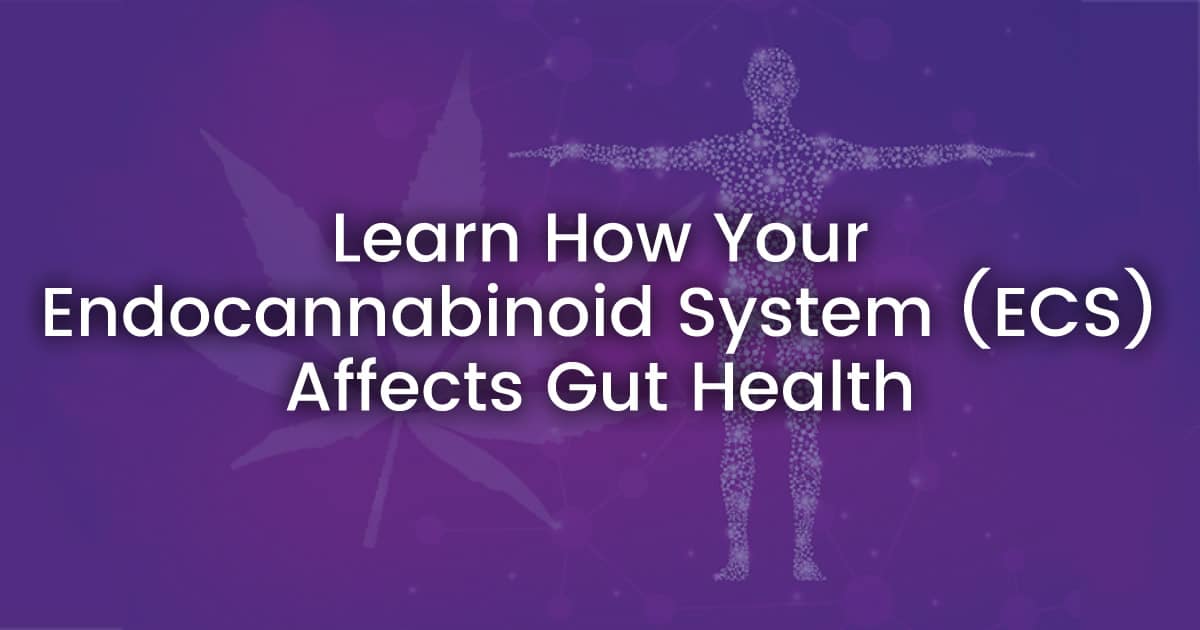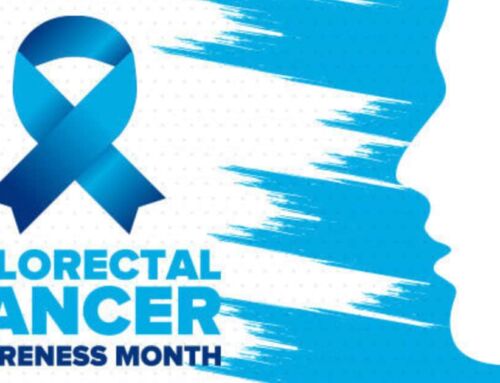Researchers discovered the endocannabinoid system (ECS) over two decades ago. But you’ve probably never heard of it. The ECS is one of your body’s best-kept secrets.
With the increasing popularity of CBD products, the ECS is finally gaining mainstream attention.
Please keep reading to learn about the ECS and how it affects your gut health.
What Is the Endocannabinoid System (ECS)?
The ECS is a biological system that maintains balance within your body and manages your overall health. It regulates many internal functions and processes throughout your body, including:
- Reproduction and fertility
- Cardiovascular health
- Digestion
- Sleep
- Mood
- Learning and memory
- Immunity
- Bone remodeling and growth
- Chronic pain
- Liver function
- Muscle formation
Researchers named the ECS after the plant that helped them discover it — cannabis. However, the ECS system naturally exists and functions even if you’ve never used cannabis.
All animals except insects are born with an ECS. This system contains three main parts: endocannabinoids, receptors, and enzymes.
Endocannabinoids
Endocannabinoids, or endogenous cannabinoids, are chemical messengers that your brain and body produce in response to stress.
These chemical messengers include:
- 2-arachidonoylglycerol (2-AG)
- N-arachidonoylethanolamine (anandamide)
The ECS is an on-demand system. Endocannabinoids are similar to hormones and neurotransmitters, but your body doesn’t store them for future use. Instead, your body synthesizes them at the earliest sign of stress. Common stressors include inflammation, pain, and anxiety.
Receptors
Endocannabinoids bind to cannabinoid receptors to initiate an action that counteracts a specific stress signal. This keeps your body in balance. For example, endocannabinoids may bind to cannabinoid receptors to reduce chronic pain.
The cannabinoid receptors include:
- Cannabinoid receptor 1 (CB1), which is primarily found in the central nervous system (CNS)
- Cannabinoid receptor 2 (CB2), which is primarily found in the peripheral nervous system (PNS)
External cannabinoids can also bind to cannabinoid receptors. Cannabidiol (CBD) is one of the dozens of cannabinoids found in cannabis. Remarkably, CBD acts as an alternative key for the endocannabinoid receptors in our bodies. Taking CBD activates the ECS, which produces a variety of therapeutic effects.
Enzymes
Once your body returns to a balanced state, enzymes break down the endocannabinoids.
The ECS contains two main enzymes:
- Monoacylglycerol acid lipase, which breaks down 2-AG
- Fatty acid amide hydrolase, which breaks down anandamide
The Gut-Brain Connection
Your gut and brain communicate with each other through a dynamic process involving many pathways. This communication refers to the gut-brain connection.
Incredibly, the vagus nerve, the longest cranial nerve in your body, travels from the brain to the gut. The vagus nerve transmits messages between your enteric nervous system (ENS) and brain.
The ENS, also known as your second brain, controls gastrointestinal function independently of the CNS. This system is responsible for various functions ranging from nutrient absorption to muscle contractions that facilitate bowel motility.
Your gut microbiome is also in constant communication with the ENS. If your microbiome becomes overrun with unhealthy bacteria, the ENS sends this information to the brain.
Remarkably, individuals with depression and Parkinson’s disease (PD) experience changes in the microbiome before the onset of the disease. This highlights the close relationship between your gut and brain.
The ECS in the gut communicates with the ECS in the brain through the gut-brain connection to maintain a healthy internal environment. This enables the ECS to regulate both physiological and cognitive functions.
What Is Palmitoylethanolamide (PEA)?
Palmitoylethanolamide (PEA) is a fatty acid compound that your body produces in response to inflammation. This chemical also occurs naturally in many foods such as egg yolks and peanuts.
PEA stimulates the ECS by enhancing the binding of 2-AG with CB1 and CB2. This action suppresses inflammation by producing anti-inflammatory compounds and preventing immune cells from releasing their inflammatory contents.
Research shows that administering external PEA may help treat intestinal motility disorders such as irritable bowel syndrome (IBS). Moreover, PEA may improve symptoms of colitis by reducing intestinal inflammation.
6 Ways the Endocannabinoid System (ECS) Affects Gut Health
The ECS regulates many body-wide processes. Below, we’ll discuss 6 ways the ECS affects your gut health.
Controls Inflammation
The ECS plays an essential role in controlling inflammation in the gastrointestinal tract. The activation of cannabinoid receptors causes your immune system to reduce inflammation. This lowers the risk of damage to the intestines.
Research reveals that humans with inflammatory conditions such as inflammatory bowel disease (IBD), diverticulitis, and celiac disease have a more active ECS. This may point to the role of the ECS in modulating inflammation.
Regulates Bowel Motility
The stimulation of the ECS also normalizes intestinal motility. Research shows that the ECS may prevent diarrhea in post-inflammatory IBS by slowing down stool frequency.
Promotes a Healthy Weight
The ECS regulates your appetite through its receptors in the hypothalamus, a part of the brain that controls fundamental bodily processes. The ECS also regulates energy metabolism in the digestive tract.
The ECS maintains proper digestive capability and appetite signaling to help you stay at a healthy weight. For example, CBD stimulates the appetite of individuals undergoing cancer treatment.
Reinforces the Intestinal Barrier
The ECS reinforces the integrity of the intestinal barrier. Leaky gut, or increased intestinal permeability, allows bacteria to cross the intestinal barrier. This can lead to the development of diseases such as IBD, obesity, and depression.
Stimulating the ECS in the gut can improve the integrity of the intestinal barrier and prevent the onset of inflammatory diseases.
Reduces Stress
Stress can alter the gut microbiome and lead to adverse effects such as impaired gut motility. When you’re stressed, your body produces the stress hormone cortisol. This puts your body in a state of “fight or flight.”
The activation of the ECS stops the production of cortisol and diminishes your stress response to repeated stressors. Increasing endocannabinoid signaling may restore gut health and reduce stress-related behaviors such as anxiety and depression.
Lowers Your Risk of Colon Cancer
Colon cancer is one of the leading causes of death worldwide. Incredibly, stimulating the ECS may reduce your risk of this disease. One study found that CBD inhibits both colon cancer formation and the spread of colon cancer cells.
How to Stimulate the ECS in the Gut
The ECS is active whenever your brain or body detects stress. But you can enhance the activity of the ECS by taking external cannabinoids like CBD and PEA.
Research shows that CBD and PEA have many beneficial effects. However, there is still much to learn about the ECS.
Supplementing your diet with cannabinoids may help ease digestive discomfort. Of course, if your problems persist without noticeable improvement, you should consult your doctor. Cannabinoids can be a helpful addition to a healthy lifestyle, but they’re not a cure-all.
If you want to unlock better gut health, you can schedule an appointment online or call our office at 210-615-8308.




